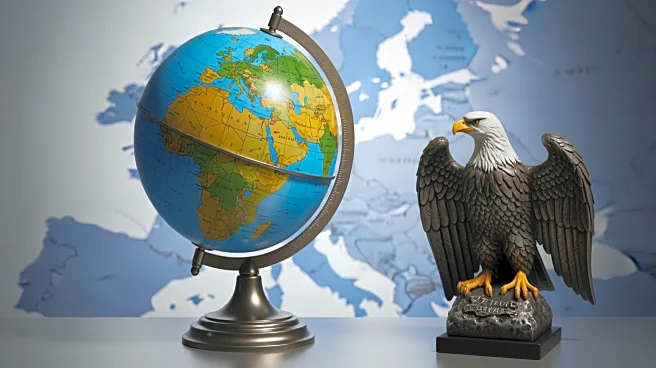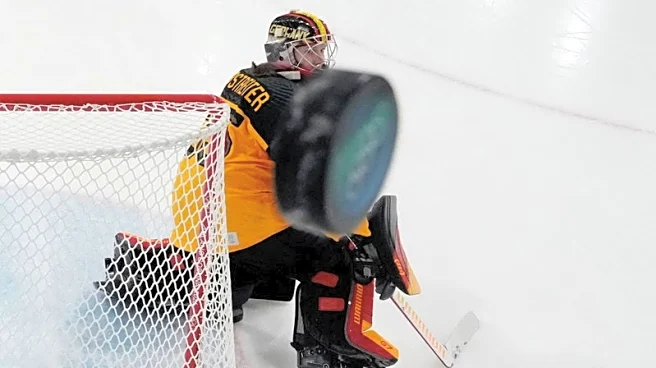What's Happening?
The European Union has aligned with the United States in imposing new economic sanctions on Russia, intensifying efforts to cut off funding for Moscow's military operations in Ukraine. These sanctions,
which include a ban on Russian liquefied natural gas imports, are part of a broader strategy to force Russian President Vladimir Putin to negotiate an end to the conflict. The EU's measures complement recent U.S. sanctions targeting Russia's largest oil companies, Rosneft and Lukoil. Ukrainian President Volodymyr Zelenskyy has praised the sanctions, urging other countries to follow suit in pressuring Russia.
Why It's Important?
The sanctions are crucial as they aim to disrupt the financial mechanisms that support Russia's military activities in Ukraine. By targeting the energy sector, the EU and U.S. are attempting to weaken Russia's economic foundation, which is heavily reliant on oil and gas revenues. The sanctions also serve as a diplomatic signal to the international community, encouraging other nations to join in isolating Russia economically. However, the long-term effectiveness of these measures is uncertain, as Russia has previously shown resilience in adapting to economic pressures. The global energy market and geopolitical dynamics will be significantly impacted by these developments.
What's Next?
The sanctions are expected to take effect soon, providing a critical period for potential diplomatic engagement. The U.S. and EU hope that the economic pressure will lead to meaningful negotiations with Russia. However, the situation remains volatile, with the potential for further escalation if Russia does not respond positively. The international community, including major oil importers, will play a pivotal role in shaping the outcome. The global economic implications, particularly in the energy sector, will be closely monitored as the situation unfolds.











